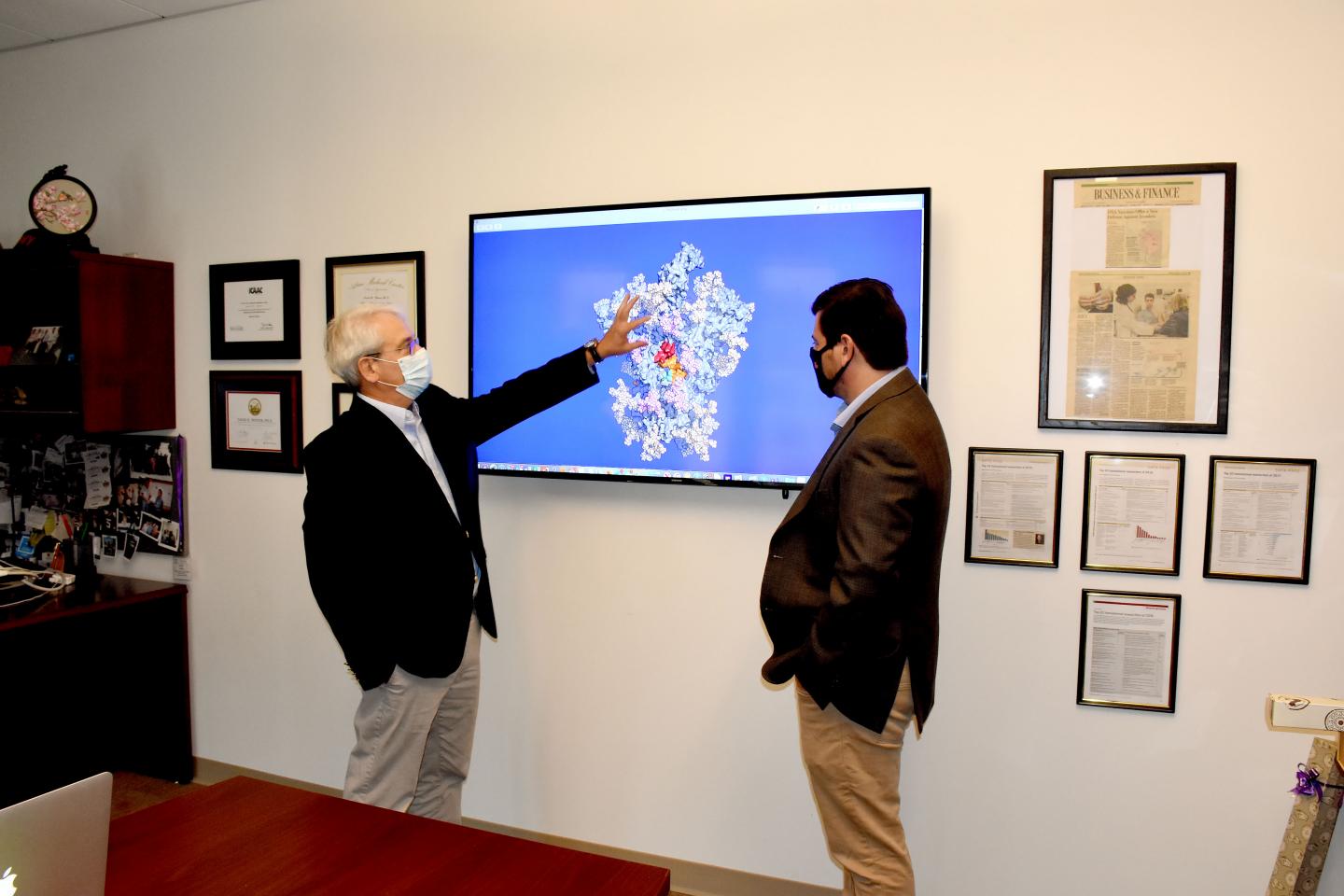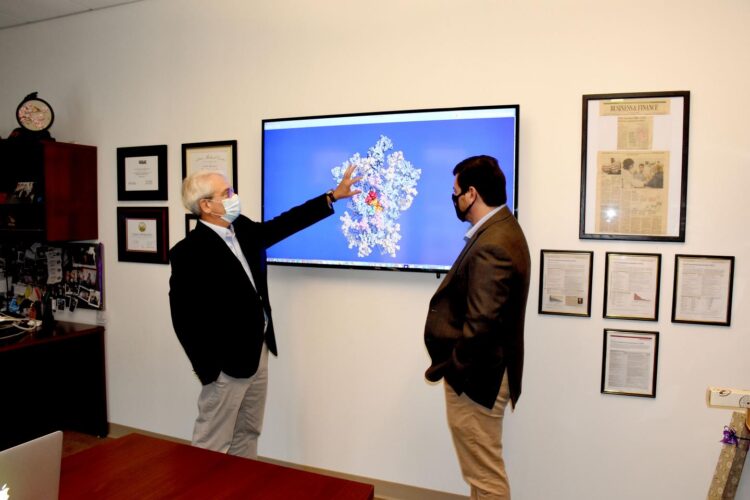Synthetic DNA nanovaccines enhance killer T cell immunity resulting in tumor control in preclinical studies

Credit: The Wistar Institute
Researchers designed DLnano-vaccines displaying 60 copies of protein parts derived from the melanoma-specific antigens Trp2 and Gp100 and tested these in mouse models of melanoma, observing prolonged survival that depended on CD8 T cell activation both in therapeutic and prophylactic settings.
“One of the advantages of synthetic DNA technologies over other methods is the versatility of the platforms,” said Ziyang Xu, Ph.D., a recent doctoral graduate working at Wistar and the first author of the study. “DLnano-vaccines may be designed for various cancer targets and our study shows this is a promising strategy for cancer immunotherapy that may warrant further testing.”
To elucidate the mechanism through which DLnano-vaccines activate CD8 T cells, the team studied the effects of the DNA-launched version of a previously described HIV nanoparticle vaccine (eOD-GT8-60mer). They observed that DLnano-vaccines administered via electroporation resulted in transient muscle cell apoptosis that attracted macrophage infiltration at the injection site, which in turn was instrumental to activate CD8 T cells.
DLnano-vaccines were developed using synthetic DNA technology in collaboration with the lab of David B. Weiner, Ph.D., Wistar executive vice president, director of the Vaccine & Immunotherapy Center, and the W.W. Smith Charitable Trust Professor in Cancer Research and also a co-senior author on the study.
###
Co-authors: Neethu Chokkalingam, Edgar Tello-Ruiz, Mamadou A. Bah, Susanne Walker, and Nicholas J. Tursi from Wistar; Megan C. Wise, Paul D. Fisher, Katherine Schultheis, Kate E. Broderick, and Laurent Humeau from Inovio Pharmaceuticals, Inc.
Work supported by: National Institutes of Health (NIH) grants U19 Al109646 and Collaborative Influenza Vaccine Innovation Centers (CIVICs) contract 75N93019C00051; additional support was provided by Inovio Pharmaceuticals, Inc., a grant from the W.W. Smith Charitable Trust, and the Monica H.M. Shander Memorial Fellowship.
Publication information: A DNA-launched nanoparticle vaccine elicits CD8+ T-cell immunity to promote in vivo tumor control, Cancer Immunology Research, 2020. Online publication.
###
The Wistar Institute is an international leader in biomedical research with special expertise in cancer, immunology, infectious disease research, and vaccine development. Founded in 1892 as the first independent nonprofit biomedical research institute in the United States, Wistar has held the prestigious Cancer Center designation from the National Cancer Institute since 1972. The Institute works actively to ensure that research advances move from the laboratory to the clinic as quickly as possible. Wistar’s Business Development team is dedicated to accelerating the translation of Wistar discoveries into innovative medicines and healthcare solutions through licensing, start-ups and creative collaborations. wistar.org.
Media Contact
Darien Sutton
[email protected]
Original Source
https:/





